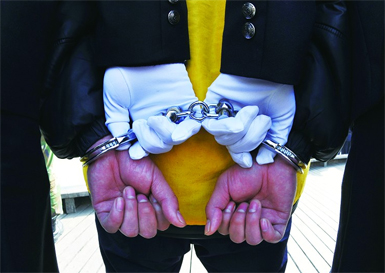

Highlights from the EO print edition, issue no. 432, August 17, 2009
China Strengthens Collection of Land Appreciation Tax
News, cover
~ Recently, the State Administration of Taxation launched a nation-wide inspection campaign aimed at cracking down on real estate companies that had been evading their land tax obligations.
~ A local tax official from Nanjing informed the EO that loopholes allowed the real estate companies to get away with not paying tax on land appreciation along with other taxes.
~ The EO found several channels by which real estate companies tended to evade the tax. These included artificially exaggerating their construction costs, delaying the tax payment deadline and submitting false reports and tax invoices.
Original article: [Chinese]
Baosteel's Failed Expansion Strategy
News, cover
~ As Hebei province has now founded its own steel giant, Hebei Steel Group, Baosteel, the largest steel company in China, is being forced to withdraw from the Hanbao Steel Company, which it co-founded along with Hangang Group, and give up on its plan of expanding its business into Hebei Province.
~ Provincial steel giants are emerging as the dominate players in the ongoing restructure of China's steel industry, with Inner Mongolia and Guangdong following Hebei's lead. Baosteel's expansion plans look likely to fail, which could cause the company to lose its reputation as a national champion.
Original Article: [Chinese]
 Chongqing Cracks Down on Local Mafia
Chongqing Cracks Down on Local Mafia
Nation, page 9
~ With the arrest of the influential Li Qiang, the recent crack down on Chongqing's mafia has moved to a new level.
~ Aside from combating local mafia, the downfall of Wen Qiang, the former deputy director of Chongqing's Public Security Bureau, also signifies the local government's determination to weed out the culture of corruption that saw officials supporting the local gangs.
Original Article: [Chinese]
Fine Tuning China's Monetary Policy
News, page 2
~ Earlier this month, China's central bank made it very clear that it would be sticking to a relatively loose monetary policy, but it also indicated that some fine tuning was also likely to take place.
~ Wang Xiaohui, an analyst with Sinolink Securities, predicted that the fine tuning policy will be driven by two factors - overseas demand and inflation expectations.
~ He also argued that monetary policy will be adjusted in three phases.
~ The first phase, which will last until the end of the year, will involve fine tuning of monetary policy via limited open market operations, controls on the amount of new loans as well as window guidance by the central bank.
~ The second phase will kick in from the end of this year when the economy starts to pick up. It's possible that the reserve requirement on banks will be raised in addition to the various measures used in phase one.
~ In the third phase, which is expected to take place deep into the first quarter of 2010, China's interest rates will begin to follow US rates up.
Original Article: [Chinese]
 Central Huijin Bends the Rules
Central Huijin Bends the Rules
Market, page 23
~ Central Huijin, the investment arm under the country's sovereign wealth fund - China Investment Corporate (CIC), plans to take over the five securities companies under China Jianyin Investment Securities.
~ However, this means that after the deal has gone through, there would be eight securities companies under Central Huijin's control.
~ This would mean that Huijin is in contravention of the new supervisory regulations issued in April last year. According to the regulations, if over two securities companies are controlled by the same unit or individual, or by each other, they are prohibited from dealing with the same securities business.
~ The EO learned that China Securities Regulatory Commission has reached an agreement with Central Huijin allowing the company a five year transitional period during which it would not be expected to meet the requirement.
Original Article: [Chinese]
QFII Back A Shares
Market, page 24
~ Despite the recent steep fall in China’s A shares, almost all qualified foreign institutional investors (QFII) have decided to maintain their stake in the market.
~ Analysts explain that QFII remain optimistic about China’s economic outlook.
~ QFII appear to value the Chinese government's pledge to maintain a relatively loose monetary policy and proactive fiscal policy.
Original Article: [Chinese]
Major Shakeup of China's Export Strategy
News, page 4
~ China will focus on setting up free-trade and economic cooperation zones, rather than trying to expand the overseas market share of its goods, according to a new strategy to boost exports from China's Ministry of Commerce.
~ Consumption patterns abroad continue to be affected by the global financial crisis and despite a bottoming out of the downturn in these economies, there has been no sign that exports to these regions will grow any time soon.
~ However exports of certain goods that are traded as parts of free trade agreements have managed to increase during the global downturn.
~ A more enterprising proposal to boost external demand, known as China’s Marshal Plan, has also been raised. It would involve China lending funds to emerging countries so that they can develop infrastructure, the only provision is that they agree to purchase Chinese goods.
Original Article: [Chinese]
 Foreign Investment: A New Theory of Evolution
Foreign Investment: A New Theory of Evolution
Corporation, page 25
~ At least one third of the foreign luxury brands with a China presence plan to dump their local intermediaries this year. This is quite a natural progression for foreign capital investing in China as they tend to seek greater independence from local partners.
~ This "sole proprietorship campaign" is being launched by a diverse group of established foreign enterprises that include major brand names such as Hewlett-Packard, Acer and Nokia.
~ The brands are trying to reducing the distance between themselves and the end consumer and to make contact with clients directly.
Original Article: [Chinese]